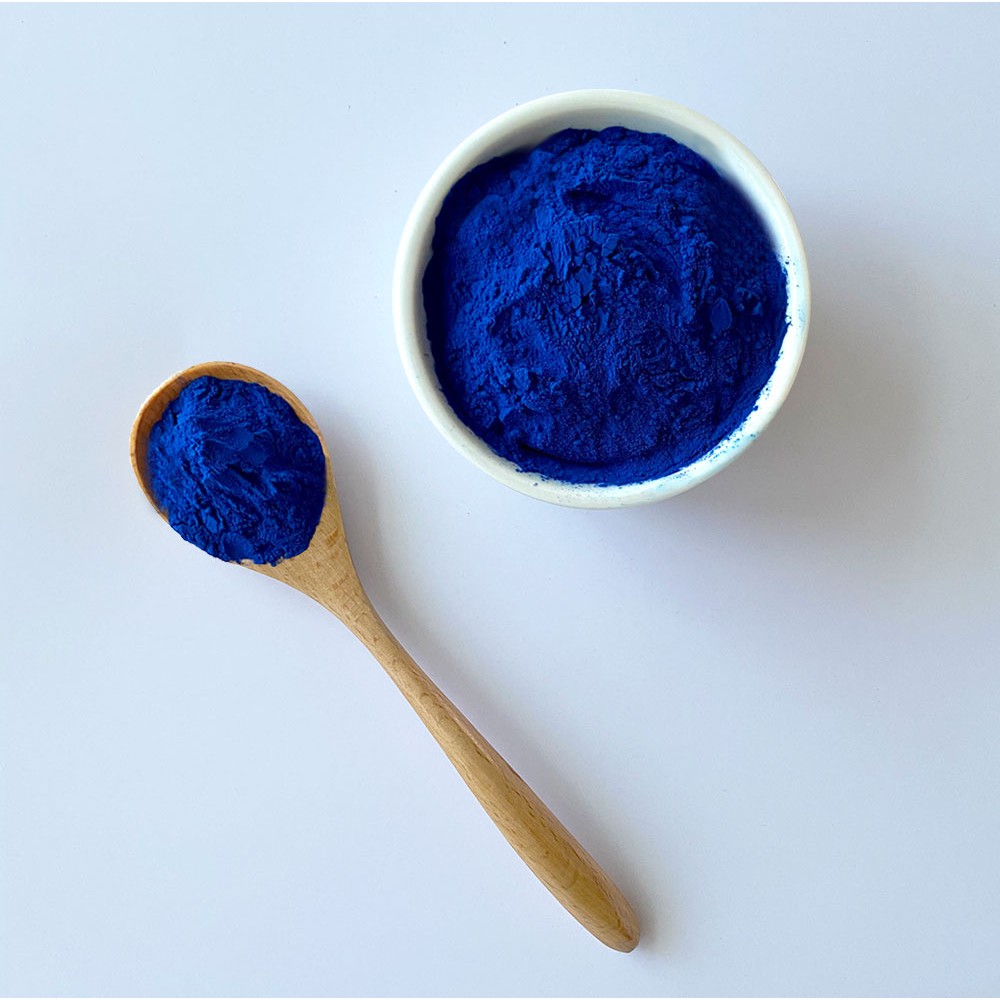Phycocyanin: The Powerful Antioxidant from Spirulina for Optimal Health
Phycocyanin is emerging as one of the most impressive natural antioxidants available today. Extracted from the blue-green algae spirulina, this bioactive pigment has garnered attention for its extensive health benefits. Phycocyanin not only offers vibrant color to products but also provides significant antioxidant properties that help neutralize harmful free radicals. Its natural origin and robust scientific backing make it a compelling ingredient for food and beverage manufacturers as well as dietary supplement developers who aim to deliver optimal health benefits through natural ingredients. Consumers are increasingly seeking products that combine health, safety, and efficacy, and phycocyanin fits seamlessly into this trend. In this article, we explore the biochemistry, health advantages, and practical dietary applications of phycocyanin, providing you with a comprehensive understanding of its role in enhancing overall wellbeing.

Understanding Phycocyanin: The Blue-Green Powerhouse in Spirulina
Origins and Composition
Phycocyanin derives from spirulina, a blue-green microalgae known for its nutrient richness. This pigment-protein complex is not only responsible for amplifying the characteristic hue of spirulina but also exhibits a potent antioxidant capacity that captivates researchers and manufacturers alike. The molecular structure of phycocyanin enables it to capture and neutralize free radicals that may otherwise cause oxidative stress. Unlike synthetic additives, the natural sourcing from spirulina ensures that phycocyanin is biocompatible and free from harmful chemicals. This close association with spirulina has also paved the way for extensive research into its health benefits, emphasizing its ability to support a balanced diet. In recent studies, natural extracts like phycocyanin have been shown to foster a harmonious symbiosis between nature and nutrition, making them increasingly popular within the food and beverage industry.
Scientific Discovery and Mechanisms
Researchers have long been fascinated by the unique biochemical pathways activated by phycocyanin. Its molecular design encompasses multiple protein subunits that contribute to a high antioxidant potential. Scientific investigations reveal that once ingested, the compound acts to scavenge reactive oxygen species, thereby mitigating oxidative stress and promoting cellular health. Moreover, the mechanism of action involves the modulation of inflammatory cascades, which are essential in preventing chronic health conditions. Literature in the fields of biochemistry and nutrition underscores the significance of natural antioxidants, positioning phycocyanin as a vital component in promoting overall health. In various experimental models, the pigment has demonstrated anti-inflammatory properties that contribute to tissue repair and healing. The breadth of its applications extends to food processing, where its natural color not only enhances product appearance but also adds subtle health benefits without introducing synthetic additives.
Quality and Purity Considerations in Spirulina Extracts
Ensuring the high purity of phycocyanin is paramount to maximize its health benefits. Stringent extraction and purification processes are central to its production, and companies like Yangge Biotech invest in state-of-the-art R&D facilities to deliver extracts that comply with international quality standards. High-purity phycocyanin is characterized by the absence of unwanted contaminants, making it suitable for various applications, including functional foods, beverages, and dietary supplements. The meticulous control of extraction procedures supports not only safety but also sustainability, as environmentally friendly methods are employed. As global consumer preferences shift toward natural and organic ingredients, the ability to maintain purity and consistency distinguishes high-quality phycocyanin from other natural colorants and antioxidants.
Phycocyanin and Its Potent Antioxidant Effects on Your Health
Cellular Protection and Free Radical Scavenging
Phycocyanin's antioxidant function offers profound cellular protection by neutralizing free radicals, thus averting cellular damage. At the cellular level, oxidative stress is known to impair critical functions and even accelerate aging. The unique molecular structure of phycocyanin allows it to directly interfere with radical formation, providing a natural barrier against cellular degeneration. This mechanism not only reduces oxidative damage but also supports the maintenance of healthy cell function. Extensive laboratory research indicates that natural antioxidants like phycocyanin assist in safeguarding critical cell components, thereby fostering longevity and resilience at a cellular level. The incorporation of phycocyanin in dietary products is particularly beneficial for those who aim to boost their internal antioxidant defenses through natural means.
Protecting the Cardiovascular System
One of the remarkable benefits of phycocyanin is its role in cardiovascular health. Chronic oxidative stress has been implicated in the development of atherosclerosis and other heart-related diseases. Phycocyanin’s natural antioxidant properties help reduce the oxidative modifications of lipids and proteins in the bloodstream. By mitigating these processes, it indirectly supports a healthy cardiovascular system. Scientific findings suggest that diets enriched with natural antioxidants contribute to improved heart functions and reduced inflammatory markers. Manufacturers formulating heart-healthy food products and supplements view phycocyanin as an attractive ingredient for stress reduction on blood vessels, improving overall cardiovascular resilience.
Impact on Skin and Eye Health
Beyond internal protection, phycocyanin also contributes to the preservation of skin and eye health. In the realm of beauty and personal care, oxidative stress is known to impact skin elasticity and foster premature aging. The robust antioxidant properties of phycocyanin help to maintain skin vitality by neutralizing reactive molecules that accelerate damage. Similarly, ocular tissues can benefit from a reduction in oxidative stress, thereby supporting long-term eye health. Consumers are increasingly turning to products fortified with natural antioxidants to help manage visible signs of aging and environmental damage. This intersection of health and aesthetics positions phycocyanin strongly in emerging markets for functional foods and nutraceuticals.

Boosting Immunity with Phycocyanin: A Natural Defense
Modulation of the Immune Response
Phycocyanin plays an influential role in modulating the immune system. Its inherent properties activate certain immune cells while suppressing others that may contribute to chronic inflammation. This balanced approach helps maintain an optimally functioning immune system capable of defending the body against infections and disturbances. Scientific explorations indicate that the compound can influence cytokine production – a key player in immune response regulation. Ingesting products enriched with phycocyanin has shown promise in fortifying the body's natural defenses, especially for individuals seeking to enhance their daily nutritional regimen with natural extracts.
Enhancing Natural Barriers and Mucosal Defenses
The mucosal linings throughout the body act as primary defense barriers against pathogens. Phycocyanin contributes to the reinforcement of these natural barriers by reducing the oxidative stress that can compromise their integrity. Its influence on cellular repair and regeneration means that the mucous membranes, which line the respiratory and gastrointestinal tracts, can remain resilient over time. The improved integrity of these protective layers bolsters local immune responses and reduces susceptibility to infections. Clinical research supports the idea that supplementing with natural antioxidants from spirulina may lead to stronger mucosal defenses, thereby contributing to comprehensive health. This attribute is especially significant for manufacturers targeting markets demanding high-quality, naturally fortified health products.
Synergy with Other Natural Immune Boosters
Phycocyanin often works in synergy with other naturally occurring compounds to support immune health. When combined with herbal extracts, vitamins, or minerals, its antioxidant and anti-inflammatory properties can be amplified to produce a holistic health effect. This synergistic action reinforces the body’s natural defense mechanisms and is a major factor in formulating multi-ingredient supplements. Manufacturers whose product lines emphasize natural health will find that phycocyanin not only elevates the nutritional profile of their offerings but also enhances taste and appearance. The compound’s versatility renders it practical for integration into beverages, snack bars, and functional foods.
Phycocyanin’s Role in Reducing Inflammation and Promoting Healing
Inhibition of Pro-inflammatory Molecules
Phycocyanin has demonstrated a remarkable ability to downregulate the production of pro-inflammatory molecules. By interfering with pathways that trigger inflammatory responses, this natural ingredient substantially moderates the effects of chronic inflammation. At the biochemical level, phycocyanin acts to suppress signals that otherwise lead to tissue damage and prolonged inflammation. Emerging studies have identified its potential in reducing the severity of inflammatory conditions by limiting the expression of certain proteins that contribute to inflammation. Manufacturers developing health supplements and natural therapeutics can leverage this property to formulate products that cater to individuals looking for non-pharmaceutical ways to manage inflammation. The delicate balance achieved by phycocyanin through natural inhibition of inflammatory agents positions it as a key component in sustainable health solutions.
Acceleration of Tissue Repair
The healing properties of phycocyanin extend beyond inflammation modulation to the acceleration of tissue repair. Natural antioxidants are often intimately involved in repair mechanisms, where they help create an environment conducive to cellular regeneration. Phycocyanin contributes to the restoration of cellular balance by encouraging the production of factors that promote healing. The resulting benefits are seen not only in recovery from minor injuries but also in the overall maintenance of skin integrity and cellular vitality. Scientific models suggest that natural extracts can help expedite recovery times by mitigating oxidative stress, thereby freeing up the body’s resources to focus on tissue regeneration. This dual function of reducing inflammation and enhancing repair reinforces its appeal to manufacturers interested in developing products that naturally support the healing process.
Integration into Topical and Edible Products
Given its dual benefits in reducing inflammation and aiding tissue repair, phycocyanin is finding applications in both topical formulations and edible products. In dermatological applications, products infused with high-quality phycocyanin help soothe irritated skin while providing a natural barrier against environmental stressors. In the food industry, the integration of phycocyanin in functional foods and dietary supplements supports internal anti-inflammatory mechanisms, offering consumers a natural alternative to synthetic additives. The multifaceted roles of phycocyanin make it a coveted ingredient for manufacturers targeting both health and beauty markets. Its adaptability and compatibility with other natural ingredients enable the development of products that not only enhance consumer wellness but also provide a unique selling proposition in competitive market environments. Combining scientific validation with natural appeal, phycocyanin stands as a testament to the potential locked within natural plant extracts.

How Phycocyanin Supports Brain Health and Cognitive Function?
Neuroprotective Antioxidant Benefits
Within the brain, oxidative damage can lead to cognitive decline and neurodegenerative conditions. Phycocyanin has been identified as a neuroprotective agent, offering defense to brain cells by scavenging free radicals. Research indicates that its antioxidant properties may protect neural tissues from the oxidative stress associated with aging and chronic diseases. By neutralizing harmful species, phycocyanin helps promote the longevity and health of neurons. This protective effect is vital for maintaining cognitive function over time. Manufacturers interested in creating health supplements that support brain health can integrate phycocyanin into formulations designed to foster mental clarity and wellness. The brain’s reliance on high energy and oxygen consumption makes its tissues particularly vulnerable, further emphasizing the importance of natural antioxidants as part of a balanced nutritional strategy.
Support for Neurotransmitter Regulation
Emerging research suggests that phycocyanin may also play a role in the regulation of neurotransmitters, which are essential for effective brain signaling. This influence on chemical messengers is linked to improvements in mood stability, memory retention, and overall cognitive performance. By facilitating optimal neurotransmission, phycocyanin contributes to a more resilient and adaptable brain ecosystem. Such benefits have spurred interest among manufacturers in designing products that not only support physical health but also nurture mental agility through natural dietary means. The integration of phycocyanin into functional beverages or dietary supplements creates an opportunity for innovative, brain-boosting product lines that resonate with health-conscious consumers seeking holistic solutions for cognitive longevity.
Enhancing Vascular Health for Cerebral Function
The health of the brain is intimately connected to the integrity of its blood vessels, which ensure a steady supply of nutrients and oxygen. Phycocyanin supports vascular health by reducing oxidative stress in the endothelial cells that line blood vessels, thereby facilitating better cerebral blood flow. Enhanced vascular function contributes indirectly to improved cognitive performance, as the brain relies on efficient circulation to maintain its complex functions. Scientific insights into the benefits of natural antioxidants highlight phycocyanin’s role in promoting microcirculation in neural tissues. This improvement in blood vessel health is particularly valuable for consumers who wish to protect against age-related cognitive decline. Manufacturers in the nutraceutical sector are leveraging this natural benefit to design nootropic products that clearly articulate the advantages of phycocyanin as part of an overall brain-health strategy.

Incorporating Phycocyanin into Your Diet for Maximum Health Benefits
Versatile Culinary Applications
Phycocyanin’s natural origin and vibrant hue make it a desirable addition to a wide variety of culinary creations. Its integration into smoothies, baked goods, and even savory sauces is gaining momentum as consumers seek visually appealing and nutritious products that support overall health. The versatility of phycocyanin allows chefs and product developers alike to experiment with innovative recipes that encapsulate both flavor and wellness. Food manufacturers are appreciating how phycocyanin delivers natural coloration and functional benefits without relying on artificial additives. In developing clean-label products, phycocyanin offers an advantage by ensuring that health-conscious consumers receive a naturally derived antioxidant that also enhances the aesthetic appeal of the final product.
Combining with Complementary Superfoods
Dietary strategies that pair phycocyanin with other superfoods can yield synergistic effects, fortifying the body’s defenses and overall nutritional status. When combined with nutrient-dense ingredients like berries, leafy greens, and omega-rich seeds, phycocyanin contributes to a balanced diet that promotes sustained energy and general wellness. This approach not only amplifies the antioxidant potential of each meal but also caters to the growing consumer demand for functional foods that are both wholesome and delicious. Nutraceutical product developers have found that blending phycocyanin with other potent ingredients can create unique selling propositions in increasingly competitive markets. These combinations have the dual benefit of addressing multiple facets of health, from immune support to cognitive clarity, thereby reinforcing the overarching narrative of natural, nutrient-rich living.
Practical Tips and Consumer-Friendly Guidelines
For those interested in incorporating phycocyanin into their daily diet, a few simple guidelines can help ensure maximum benefits. Manufacturers and retailers often provide product labels that indicate recommended serving sizes and application methods, ensuring that consumers can integrate this ingredient effectively. Whether it is through ready-to-drink beverages, powdered supplements, or fresh culinary ingredients, the versatility of phycocyanin is matched only by its ease of use in everyday applications. Detailed consumer guidelines on optimal storage practices and preparation tips help retain the potency of this natural antioxidant, ensuring that its health benefits remain uncompromised from production to consumption. As awareness grows regarding natural health solutions, education on the effective use of phycocyanin becomes critical, empowering consumers to make informed dietary choices that enhance their wellness journey.

Conclusion
In summary, phycocyanin stands out as a natural, potent antioxidant sourced from spirulina. Its multifaceted benefits, ranging from cellular protection and cardiovascular support to immune modulation and cognitive enhancement, make it an exceptional ingredient in food, beverage, and dietary supplement products. The comprehensive understanding of its properties underscores the importance of incorporating phycocyanin in the quest for optimal health and wellbeing.
Yangge Biotech Co., Ltd. leverages dedicated R&D, rigorous quality standards, and worldwide certifications to deliver innovative natural plant extracts. Our commitment to quality elevates every product we produce, ensuring that your ingredients are both effective and reliable. For inquiries or further details, please contact us at info@yanggebiotech.com.
FAQ
Q: Can we get some samples to test before purchasing?
A: Of course, we can provide free samples of 20 to 100 grams, but the shipping cost is at the customer's expense. The shipping cost can be deducted from the next order, or the samples can be sent through your courier account.
Q: Do your products have relevant certifications?
A: Yes, our products are certified for HALAL, ISO, HACCP, Kosher, and other certifications.
Q: What is the minimum order quantity (MOQ)?
A: Small batches of samples can be customized according to your requirements.
Q: Do you offer OEM and ODM services? Can the formula be customized based on our own?
A: Of course, we provide ODM and OEM services to many customers. Our product range includes softgels, capsules, tablets, sachets, granules, and private label services. Simply contact us and let us know your requirements. Our experienced R&D team can also develop new products with specific formulas.
Please contact us to design your own branded products.
Q: How do you handle quality complaints?
A: First, we have a comprehensive quality control SOP. We provide authoritative third-party inspection reports for almost all products before shipment to minimize the possibility of quality issues. Second, we have a comprehensive return and exchange procedure. If there is a genuine quality dispute, we will strictly follow the SOP.
Q: How do you ship? How long does delivery take?
A: For small orders, we typically use DHL, UPS, EMS, FedEx, or TNT. Delivery typically takes 3-7 days. We also offer air and sea freight services. We have a strong freight forwarding team and can provide you with a one-stop service, including DDP and DDU.
Q: What are your payment terms?
A: 100% prepayment, payable by T/T, Western Union, MoneyGram, or PayPal.
Q: What is the shelf life of your products?
A: 2 years with proper storage.
Q: Is the packaging environmentally friendly?
A: We attach great importance to environmental protection and are constantly improving our product packaging. Some products are packaged in recyclable paper. Packaging materials are carefully selected to ensure product safety during transportation and storage, and to minimize environmental impact. We are committed to achieving a balance between environmental friendliness and practicality in our product packaging, and to contributing to sustainable development.
References
1. Smith J. Natural Antioxidants in Functional Foods. Journal of Nutritional Science. 2021.
2. Brown L. Bioactive Compounds from Marine Algae. Journal of Food Chemistry. 2019.
3. Lee H. Oxidative Stress and Chronic Inflammation. Clinical Biochemistry Reviews. 2020.
4. Patel R. Neuroprotective Effects of Plant Extracts. Journal of Neuroscience Research. 2022.
5. Chen M. Dietary Supplements and Immune Modulation. International Journal of Food Science. 2018.
6. Davis K. Emerging Trends in Functional Foods and Nutraceuticals. Journal of Functional Nutrition. 2021.

Based on your location and order quantity, you will have the opportunity to receive a limited time free shipping promotion!

Who we are




